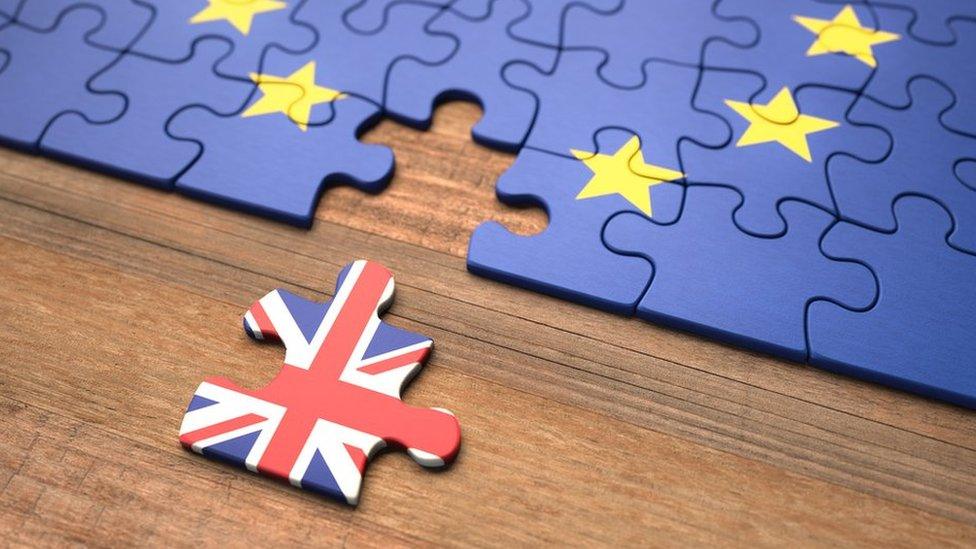Brexit: Does an Irish Sea border undermine the union?
- Published
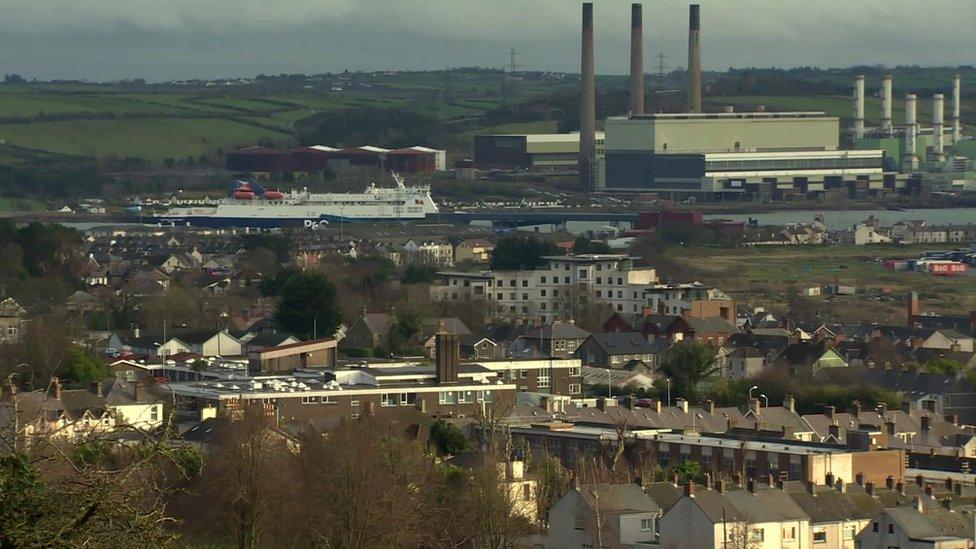
Checks could be introduced at Larne port
Larne has many titles. For hundreds of years it has been a port and harbour. For visitors, it is often the first place they see when they arrive on the ferry from Scotland.
Yet, very soon, this part of east Antrim will have a new name. Larne is about to become a border town.
This will be the place where the new Brexit customs arrangements will begin and Larne finds itself on the frontier.
The sea dominates everything in this part of the world and you can set your watch by the blue and white ferries as they glide in and out of the harbour, making their way to and from Cairnryan.
The link to Scotland provides local jobs and economic security - but now this important stretch of water comes with an economic border and puts Larne at the centre of the Brexit story.
'Most significant change since partition'
As ever with the UK 's EU departure, political interpretations vary on what happens next.
The former UUP leader Lord Empey set some of the tone this week when he said the prospect of checks at Larne marked the most significant political change "since partition".
He and the DUP's Lord Dodds have been locked in a unionist war of words over the past few days.
There have been claims and counterclaims over whether the new trading arrangements will result in Northern Ireland's place in the union being undermined.
So is that the case? Are we witnessing a loosening of political bonds that have linked Northern Ireland with the rest of the UK for decades?
Larne is a good starting point to gauge opinion amongst those who want to keep Northern Ireland in the UK.
It has a special place in unionist history as it was here where arms were brought ashore for the UVF during the Home Rule crisis of 1914.
Today the 20,000 strong town is predominately unionist and, at Westminste,r the area is represented by the DUP's Sammy Wilson - an arch-fan of Brexit.
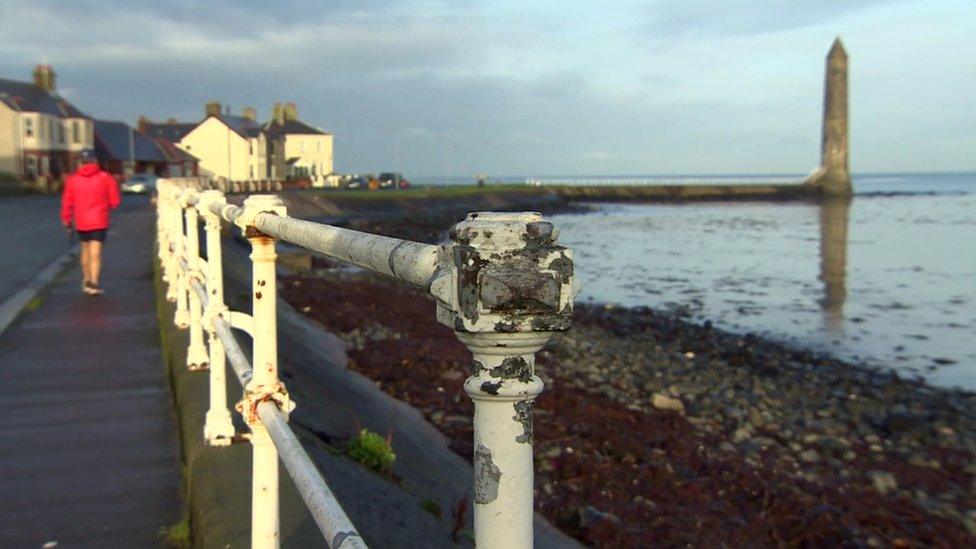
This week, as the cold December wind blew in from the sea, many of his constituents took to the town centre's streets to buy Christmas presents.
In front of a BBC News NI camera, a number voiced their opinions on Brexit and the union.
Their thoughts were wide-ranging and well-informed. One unionist voter said the union was safe "at this moment in time" but then added that in ten years time "it could be a different story".
Another remarked that the union was secure at present but there was bound to be a border poll "some day".
Others seemed convinced that the current political circumstances were not going to alter with one shopper remarking that the union was "working ok, so why change it?".
That desire to keep the union in place was shared by many who gave their views on camera and that theme was echoed by Davy Wilson who runs a freight business in Larne.
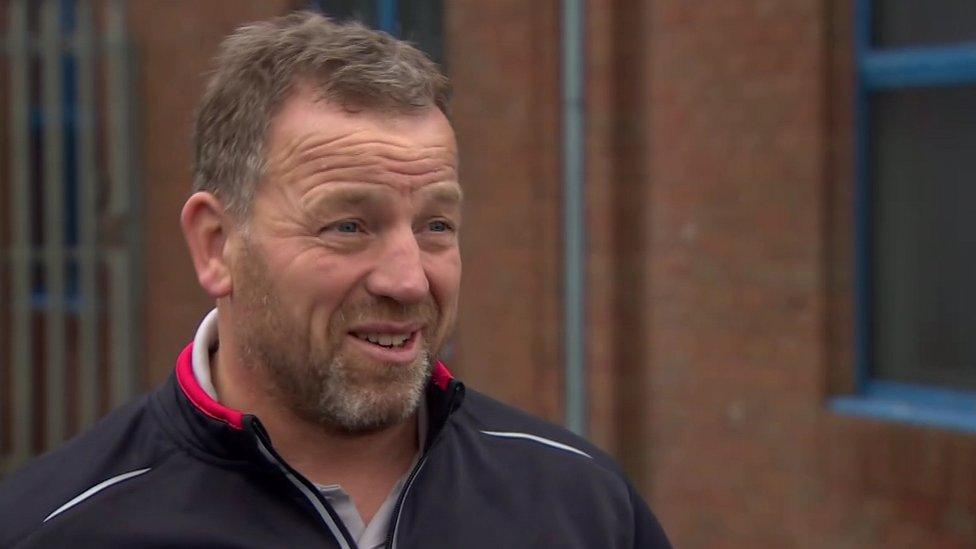
Davy Wilson said he had not heard a strong enough case for a united Ireland
The 54-year-old describes himself politically as a unionist with a small 'u'.
He told BBC News NI there was never going to be a Brexit border between Northern Ireland and the Republic, and he insists an Irish Sea border was always inevitable.
He believes the union still remains "the best show in town" and he said no one has made a strong enough economic argument for a united Ireland.
He said talk of the union being undermined was nothing new and that Northern Ireland's place in the UK had always been under threat during his lifetime.
Local historian and writer David Hume understands why some unionists might feel that Brexit and border controls could undermine Northern Ireland's place in the UK.
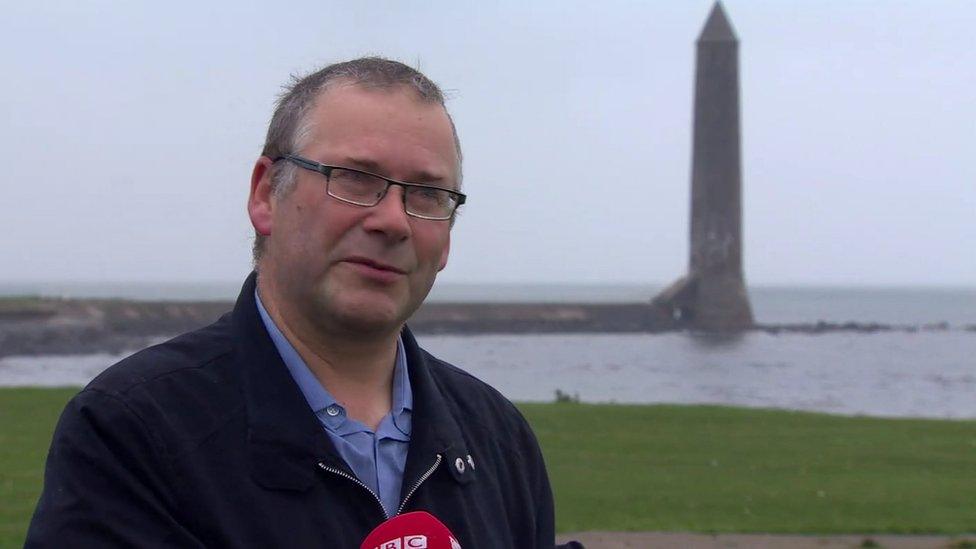
Local historian David Hume said some unionists were wary of Brexit undermining the union
"Unionists are very suspicious people," he said.
"I always say historically they are always looking for the Lundy who is going to sell them out.
"Because of that suspicion, this type of scenario will feed into that suspicion in a very big way."
What happens in the port of Larne in the months ahead depends on how Brexit plays out.
History was made along the east Antrim shoreline but now a new narrative is being forged where the worlds of politics and commerce collide.
It is also a story of identity and sovereignty. A tale of twists and turns where the ending has yet to be written.
- Published26 July 2019
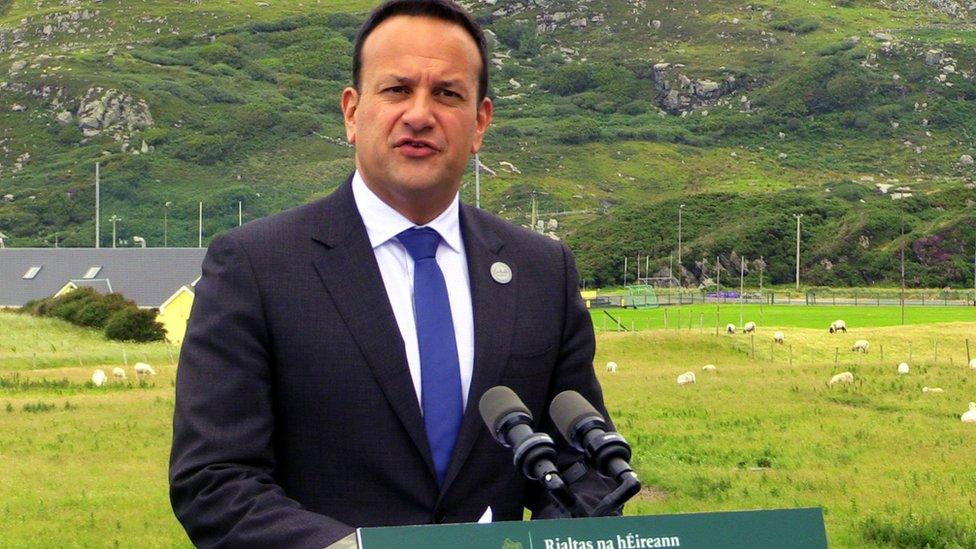
- Published24 December 2020
